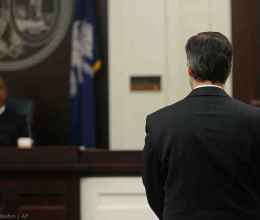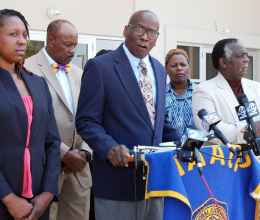June 12, 2013. Victoria Middleton. Post and Courier. Charleston. In comments reported in The Post and Courier on June 6, Sheriff Al Cannon ignores the ACLU’s findings of racial disparity in arrests in Charleston County (where blacks are 3.2 times more likely to be arrested for marijuana possession than whites) and claims the report is based on “biased research.”
In fact, the real “bias” lies in the tremendously disproportionate impact on African-Americans of the so-called War on Marijuana.
It’s disappointing that one of our top local elected officials would dismiss out of hand a well-documented, thoroughly researched, 185-page national ACLU report demonstrating the scope of racial bias in arrests for marijuana possession in our county.
In 2010, there were over 889,000 marijuana arrests nationwide — 300,000 more than arrests for all violent crimes combined that year. This means one marijuana arrest every 37 seconds in 2010.
Over 780,000 of those arrests were for possession. Nationwide, a black person was over 3.7 times more likely to be arrested for marijuana possession than a white person, despite comparable usage rates.
In Charleston County in 2010, there were 1,394 arrests per 100,000 African-Americans; there were 435 arrests per 100,000 whites.
Charleston County was among those nationwide with the highest percentage increase in marijuana possession arrest rates from 2001-2010, with a 123.9 percent increase.
Statewide, blacks make up about 28.2 percent of the population but accounted for 53.3 percent of marijuana possession arrests in 2010.
The ACLU report relies on the Federal Bureau of Investigation’s Uniform Crime Reporting Program (“FBI/UCR Program”), which is an annual data collection that is reported by local police agencies directly to the FBI. It also relies on the United States Census annual county population estimates by age, sex, race, and ethnicity.
Additional data on marijuana use by race is drawn from the National Survey on Drug Use and Health conducted by the Substance Abuse and Mental Health Services Administration.
The FBI/UCR Program reports on all persons processed by arrest, criminal citation, or summons for committing an offense in its jurisdiction, including those persons arrested and released without a formal charge being placed against them, and juveniles taken into custody or arrested but merely warned and released without being charged.
We hope that Sheriff Cannon and his law enforcement colleagues, as well as civilian officials who are entrusted with public safety and welfare, will study these findings and ask whether a closer review of local law enforcement policies and practices is in order.
We urge local lawmakers and law enforcement to reform policing practices, including ending racial profiling as well as unconstitutional stops, frisks,and searches, and also to reform state and federal funding streams that incentivize police to make low-level drug arrests.
If decriminalizing marijuana is not possible in South Carolina at this time, in an era of budget shortfalls and cuts in services, we should at the very least take a hard look at the millions of dollars — $49 million in South Carolina in 2010 — still being spent on enforcement. That money could be better invested in public schools and community and public health programs, including drug treatment.


